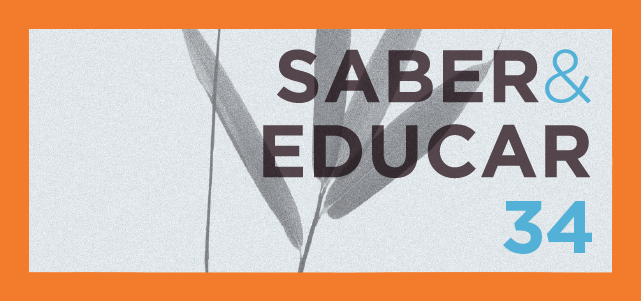Gamificação no Ensino Superior
Simulação e Avaliação do Modelo “Exploradores do Conhecimento”
DOI :
https://doi.org/10.25767/se.v34i1.41904Mots-clés :
Gamificação; Ensino Superior; Aprendizagem Ativa; Simulação Educacional; Competências Acadêmicas; Engajamento Estudantil; Inovação Pedagógica.Résumé
Este artigo apresenta e avalia, por meio de simulação, um modelo de gamificação denominado “Exploradores do Conhecimento”, desenvolvido para o ensino superior. O modelo integra elementos de jogos — como missões académicas, sistemas de pontuação, recompensas, rankings e feedback contínuo — ao currículo de disciplinas universitárias, com o objetivo de promover maior engajamento, aprendizagem ativa e desenvolvimento de competências. A simulação foi conduzida num cenário fictício de um curso de Gestão com vinte perfis estudantis variados, permitindo observar tendências de participação, desempenho e evolução de competências. Os resultados indicam aumento significativo do envolvimento, melhoria no desempenho académico e fortalecimento de habilidades colaborativas e analíticas. Observou-se também a importância do equilíbrio entre desafio e suporte, bem como a necessidade de adaptação a diferentes perfis de aprendizagem. O estudo conclui que a gamificação, quando aplicada de forma estruturada e pedagógica, pode representar uma estratégia eficaz de inovação no ensino superior.
Références
Deterding, S., Dixon, D., Khaled, R., & Nacke, L. (2011). From game design elements to gamefulness: Defining “gamification”. In Proceedings of the 15th International Academic MindTrek Conference: Envisioning Future Media Environments (pp. 9–15). ACM. https://doi.org/10.1145/2181037.2181040
Domínguez, A., Saenz-de-Navarrete, J., de-Marcos, L., Fernández-Sanz, L., Pagés, C., & Martínez-Herráiz, J. J. (2013). Gamifying learning experiences: Practical implications and outcomes. Computers & Education, 63, 380–392. https://doi.org/10.1016/j.compedu.2012.12.020
Hamari, J., Koivisto, J., & Sarsa, H. (2014). Does gamification work? A literature review of empirical studies on gamification. In Proceedings of the 47th Hawaii International Conference on System Sciences (pp. 3025–3034). IEEE. https://doi.org/10.1109/HICSS.2014.377
Hanus, M. D., & Fox, J. (2015). Assessing the effects of gamification in the classroom: A longitudinal study on intrinsic motivation, social comparison, satisfaction, effort, and academic performance. Computers & Education, 80, 152–161. https://doi.org/10.1016/j.compedu.2014.08.019
Kapp, K. M. (2012). The gamification of learning and instruction: Game-based methods and strategies for training and education. Pfeiffer.
Landers, R. N., & Armstrong, M. B. (2017). Enhancing instructional outcomes with gamification: An empirical test of the technology-enhanced training effectiveness model. Computers in Human Behavior, 71, 499–507. https://doi.org/10.1016/j.chb.2015.07.031
Landers, R. N., & Callan, R. C. (2011). Casual social games as serious games: The psychology of gamification in undergraduate education and employee training. In M. Ma, A. Oikonomou, & L. C. Jain (Eds.), Serious games and edutainment applications (pp. 399–423). Springer. https://doi.org/10.1007/978-1-4471-2161-9_20
Ryan, R. M., & Deci, E. L. (2000). Self-determination theory and the facilitation of intrinsic motivation, social development, and well-being. American Psychologist, 55(1), 68–78. https://doi.org/10.1037/0003-066X.55.1.68
Sailer, M., Hense, J. U., Mayr, S. K., & Mandl, H. (2017). How gamification motivates: An experimental study of the effects of specific game design elements on psychological need satisfaction. Computers in Human Behavior, 69, 371–380. https://doi.org/10.1016/j.chb.2016.12.033
Seaborn, K., & Fels, D. I. (2015). Gamification in theory and action: A survey. International Journal of Human-Computer Studies, 74, 14–31. https://doi.org/10.1016/j.ijhcs.2014.09.006
Bovermann, K., & Bastiaens, T. J. (2020). Towards a motivational design? Connecting gamification user types and online learning activities. Research and Practice in Technology Enhanced Learning, 15(1), 1–19. https://doi.org/10.1186/s41039-019-0121-4
Huang, B., & Hew, K. F. (2022). Implementing gamification in higher education: A systematic review and future research. Educational Research Review, 35, 100433. https://doi.org/10.1016/j.edurev.2021.100433
Subhash, S., & Cudney, E. A. (2018). Gamified learning in higher education: A systematic review of the literature. Computers in Human Behavior, 87, 192–206. https://doi.org/10.1016/j.chb.2018.05.028
Toda, A. M., Valle, P. H. D., & Isotani, S. (2019). The dark side of gamification: An overview of negative effects of gamification in education. International Journal of Educational Technology in Higher Education, 16(1), 1–17. https://doi.org/10.1186/s41239-019-0172-7
Xu, B., & Chen, N. S. (2022). The moderating effect of gamification on learning outcomes and motivation in higher education. Computers & Education, 188, 104614.
Téléchargements
Publié-e
Comment citer
Numéro
Rubrique
Licence
© Rui Pascoal 2025

Cette œuvre est sous licence Creative Commons Attribution - Pas d'Utilisation Commerciale - Partage dans les Mêmes Conditions 4.0 International.
Os autores mantêm os direitos de autor e concedem à Saber & Educar o direito de primeira publicação, com o trabalho simultaneamente licenciado sob a Licença Creative Commons Attribution 4.0 International (CC BY 4.0) que permite que outros partilhem, adaptem e redistribuam o trabalhopara qualquer finalidade, inclusive comercial, desde que seja dado o devido crédito à autoria e à publicação inicial nesta revista.
A revista reserva o direito de efetuar, nos originais, alterações de ordem normativa, ortográfica e gramatical, com vista a manter o padrão culto da língua, respeitando, porém, o estilo dos autores.
As opiniões emitidas pelos autores dos artigos são da sua exclusiva responsabilidade.
A submissão de artigos a esta revista não contempla qualquer pagamento ou taxa.
Autores têm permissão e são estimulados a publicar e distribuir o seu trabalho online (por exemplo, em repositórios institucionais ou páginas pessoais),pois isso pode aumentar o impacto e a citação do trabalho publicado (Ver O Efeito do Acesso Livre).
Os nomes e endereços fornecidos nesta revista serão usados exclusivamente para os serviços prestados por esta publicação, não sendo divulgados para outras finalidades ou a terceiros.
Legislação aplicável: Política de Proteção de Dados






